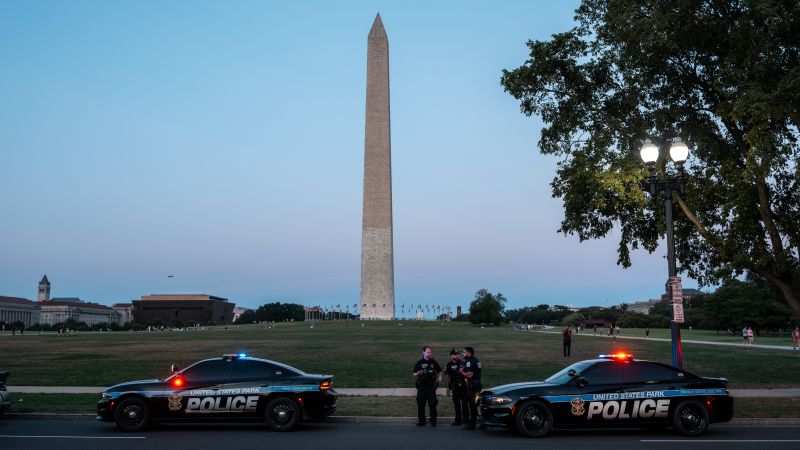On a forthcoming Monday, President Donald Trump is set to escalate his efforts aimed at reducing crime in Washington, D.C. His rhetoric indicates a potential federal takeover of the nation’s capital, despite a largely passive response from local city officials. The backdrop to this anticipation follows a recent surge in federal law enforcement presence in D.C., with expectations that up to 450 federal officers, including 130 FBI agents, will join local police in patrolling the city to address crime concerns.
The White House has disclosed plans for this dramatic increase in law enforcement presence, an undertaking characterized by the FBI agents patrolling alongside D.C. police. A source familiar with these developments revealed that the agents would largely focus on running license plates in search of stolen vehicles and outstanding warrants—an operational protocol atypical for FBI agents, evoking questions about the operational boundaries of federal agencies in local law enforcement.
Compounding the tension, Trump announced he would hold a press conference at 10 a.m. ET on Monday, heralding an agenda he claims will “essentially stop violent crime in Washington, D.C.” This proclamation was accompanied by stark assertions made on social media, where Trump declared his intent to enhance the capital’s safety and aesthetic appeal. He demanded immediate relocation of the homeless population, assuring them that provisions for accommodation would be provided but situated far away from the Capitol. In a jarring contrast, he vowed to jail criminals, positioning law and order as the order of the day.
Despite Trump’s claims of a crime spike in D.C., local statistics tell a different narrative. Preliminary year-to-date comparisons from the D.C. Metropolitan Police Department illustrate that overall crime has actually decreased relative to the previous year, mirroring a broader trend of declining rates in major U.S. cities. Local government responses have been cautious, as officials strive to avoid confrontation with Trump, a strategy facilitating cooperative relations between the city’s administration and federal law enforcement agencies, even when contrasts in governance ideologies persist.
Washington Mayor Muriel Bowser remained notably silent concerning Trump’s recent outbursts regarding federal intervention for several days. Eventually breaking this silence in an interview with MSNBC, she refuted claims of rampant crime in the city, asserting the National Guard remains under presidential authority and reiterating shared priorities with Trump around neighborhood safety and crime reduction. Bowser’s diplomatic navigation of publicly addressing Trump’s rhetoric without inciting direct conflict is particularly notable given the aggressive stance the D.C. government portrayed during Trump’s initial term.
Further illustrating this tone of diplomacy, Bowser’s office, alongside numerous D.C. Council members, indicated a reluctance to provide comment on the unfolding situation, with some attributing local crime challenges to systemic inadequacies resulting from insufficient judicial nominations by both the Trump and Biden administrations. This obsequiousness differs sharply from the city’s vigorous resistance during Trump’s tenure, evidenced by the painting of “Black Lives Matter” in front of the White House amid protests against police brutality.
Bowser’s strategy to address crime while managing relations with federal agencies mitigates the potential fallout of opposing Trump’s federal law enforcement deployments. Given that D.C. federal agents frequently collaborate with local police on substantial security matters, maintaining a cooperative stance may serve to stabilize relations despite the emotional volatility surrounding crime discourse.
Moreover, Trump has indicated his interest in a more pronounced federal presence in D.C. law enforcement, speculating on the legitimacy of seizing control of the Metropolitan Police Department and potential actions against D.C. Home Rule—which currently allocates significant local governance authority to D.C. officials. The president reiterated in an interview the necessity for D.C. to be “the best-run place in the country,” underscoring the considerable federal oversight that could be sought.
The president can legally assert control over D.C.’s police force for 48 hours during emergencies, with the potential for a more extended federal oversight contingent on congressional notification. However, effectively instituting a complete federal governance model would necessitate legislative approval, a significant hurdle given the current political landscape.
As the situation progresses, collaboration and strategic navigation remain essential for local leadership in balancing federal involvement while addressing the concerns of residents. The ramifications of such federal engagement in local affairs continue to invoke a robust dialogue concerning governance, autonomy, and civil rights within the capital.











